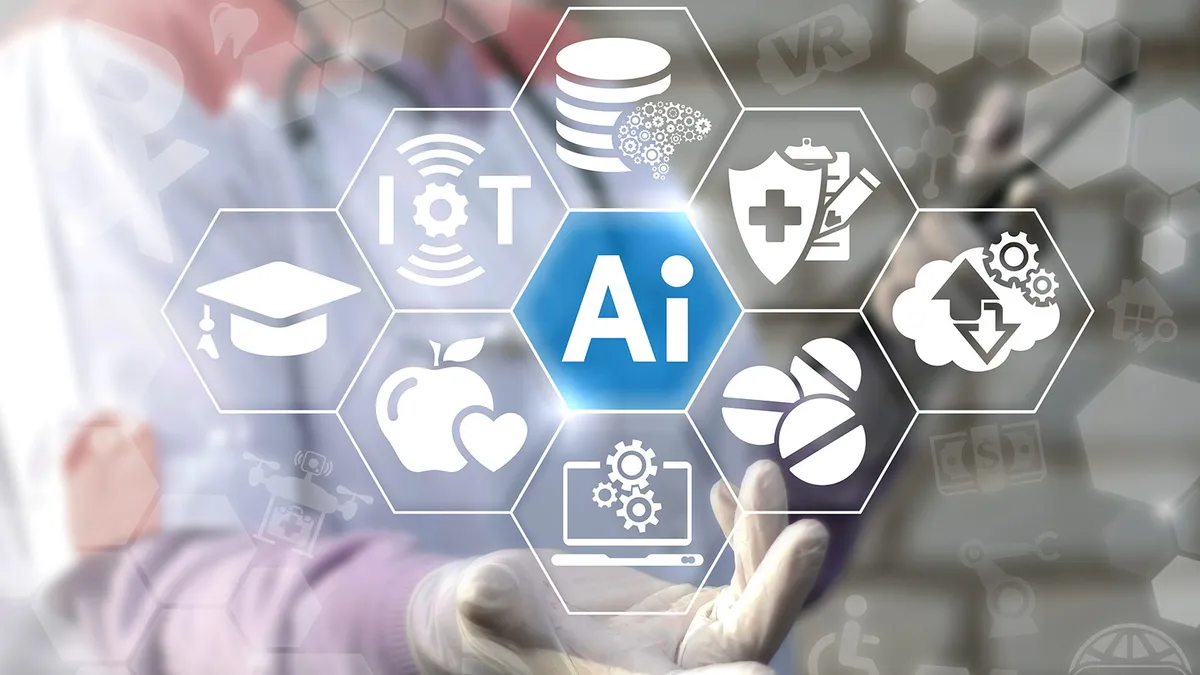Human Vs Machine: Careers That AI Can’t Replace (And Those It Already Is)
By: Javid Amin | 16 September 2025
The AI Revolution and the Human Question
Artificial intelligence is no longer a distant concept—it’s here, reshaping industries, workflows, and the very nature of employment. From chatbots handling customer queries to algorithms writing code, AI is rapidly automating tasks once thought to be uniquely human. This shift brings both promise and peril.
As we navigate this transformation, one question looms large: Which jobs will AI replace—and which will remain irreplaceably human?
This article explores the evolving landscape of work, identifying roles most vulnerable to automation and those that are likely to thrive. It offers insights for professionals, students, and policymakers seeking clarity in a world where machines are learning fast—but not everything.
Jobs AI Is Likely to Replace Soon
AI excels at tasks that are predictable, repetitive, and data-driven. If a job involves following a script, processing information, or responding to routine queries, it’s at high risk of automation. Let’s explore the roles most vulnerable.
01. Customer Support (Phone & Chat-Based)
Customer service roles—especially those handled via phone, email, or live chat—are among the first to be automated. AI-powered chatbots and voice assistants can now handle thousands of queries simultaneously, offering consistent responses and 24/7 availability.
Why AI Wins Here:
- Scripted interactions are easy to model
- AI doesn’t tire or get emotional
- Cost savings for businesses are significant
Impact: Entry-level support jobs may decline rapidly, especially in tech, telecom, and e-commerce sectors. However, complex support roles requiring escalation or emotional intelligence may remain human-led.
02. Data Entry and Processing
Jobs that involve entering, verifying, or organizing data—such as administrative assistants, billing clerks, and inventory managers—are highly susceptible to automation.
Why AI Wins Here:
- High accuracy and speed
- Ability to process large volumes instantly
- Reduced human error
Impact: Expect major shifts in back-office operations across banking, insurance, healthcare, and logistics.
03. Basic Programming and Web Development
AI tools now allow users to build websites, apps, and even games using simple prompts. While advanced software engineering remains complex, many routine coding tasks are being automated.
Why AI Wins Here:
- Code generation tools like low-code/no-code platforms
- AI-assisted debugging and optimization
- Rapid prototyping without deep technical knowledge
Impact: Junior developer roles may shrink, while demand for AI-literate engineers and system architects may rise.
04. Market Research and Report Generation
AI can analyze vast datasets, identify trends, and generate reports faster than any human. Roles focused on compiling insights, especially in marketing and finance, are being redefined.
Why AI Wins Here:
- Pattern recognition at scale
- Automated dashboards and visualizations
- Natural language generation for summaries
Impact: Analysts who rely solely on data crunching may need to upskill in interpretation, strategy, and storytelling.
05. Accounting and Bookkeeping (Routine Tasks)
While strategic financial planning remains human-led, routine accounting tasks—like ledger updates, invoice processing, and tax calculations—are increasingly automated.
Why AI Wins Here:
- Precision and compliance
- Integration with financial software
- Real-time updates and alerts
Impact: Bookkeeping roles may decline, but financial advisors and auditors with analytical skills will remain essential.
Jobs AI Can’t Replace (At Least Not Anytime Soon)
Despite its power, AI lacks empathy, creativity, moral judgment, and physical presence. Roles that rely on these qualities are far more resilient. Let’s explore the careers that remain safe—and even strengthened—by AI.
01. Nursing and Caregiving
Nursing is a deeply human profession. It involves emotional support, physical care, and real-time decision-making in unpredictable environments. AI may assist with diagnostics, but it cannot replicate compassion.
Why AI Falls Short:
- Empathy and emotional connection
- Physical presence and touch
- Ethical decision-making in sensitive scenarios
Impact: Nursing, elder care, and pediatric support will remain human-led, with AI serving as a supportive tool.
02. Creative Arts and Storytelling
Writers, poets, musicians, and visual artists tap into emotion, culture, and originality. While AI can mimic styles, it cannot create with soul or context.
Why AI Falls Short:
- Lack of lived experience
- Inability to understand cultural nuance
- No emotional ownership of work
Impact: Creative professionals who embrace AI as a tool—not a replacement—will thrive. Expect hybrid roles like “AI-assisted designer” or “prompt-based storyteller.”
03. Psychologists, Therapists, and Counselors
Mental health support requires deep listening, empathy, and trust. AI may offer basic coping tips, but it cannot build therapeutic relationships or navigate complex emotions.
Why AI Falls Short:
- Emotional nuance and non-verbal cues
- Ethical boundaries and confidentiality
- Human connection and healing
Impact: Therapists and counselors remain irreplaceable, though AI may assist with scheduling, journaling, and symptom tracking.
04. Teachers and Educators
Education is more than information delivery—it’s mentorship, adaptation, and inspiration. While AI can personalize content, it cannot replace the human spark that drives learning.
Why AI Falls Short:
- Classroom dynamics and emotional intelligence
- Motivation and encouragement
- Cultural and contextual adaptation
Impact: Teachers who integrate AI tools into their pedagogy will enhance learning, not lose relevance.
05. Strategic Leadership and Decision-Making
CEOs, strategists, and policy makers operate in ambiguity, balancing ethics, vision, and stakeholder interests. AI can offer data—but not wisdom.
Why AI Falls Short:
- Moral reasoning and long-term vision
- Negotiation and diplomacy
- Crisis management and intuition
Impact: Leadership roles will evolve, but remain human-led. AI will serve as an advisor, not a decision-maker.
The Gray Zone: Hybrid Roles and Evolving Careers
Some jobs sit in the middle—partially automatable, but still requiring human oversight. These include:
- Software engineers: AI accelerates coding but human architects remain vital
- Marketing strategists: AI drafts content, humans shape campaigns
- Legal researchers: AI finds precedents, lawyers interpret and argue
- Journalists: AI summarizes, humans investigate and contextualize
- Project managers: AI tracks progress, humans resolve conflicts and motivate teams
These roles will evolve into hybrid professions, blending technical fluency with human insight.
Preparing for the Future: Skills That Safeguard Your Career
To stay relevant in an AI-driven world, professionals must cultivate skills that machines struggle to replicate:
Key Human Skills:
- Emotional intelligence
- Critical thinking
- Creativity and storytelling
- Ethical judgment
- Adaptability and lifelong learning
- Collaboration and leadership
Tech Fluency Matters Too:
- Understanding AI tools
- Prompt engineering
- Data literacy
- Digital communication
- Cybersecurity awareness
The future belongs to those who can blend human depth with digital agility.
Career Planning in the Age of AI
Whether you’re a student choosing a major, a mid-career professional considering a pivot, or a business leader shaping your workforce, here’s how to plan:
Steps to Future-Proof Your Career:
- Audit your current role: What tasks are repetitive? What’s uniquely human?
- Upskill strategically: Learn tools that complement your strengths
- Embrace hybrid roles: Combine tech with empathy, strategy, or creativity
- Stay curious: Follow trends, attend webinars, and read widely
- Build a personal brand: Showcase your human value online
- Network intentionally: Relationships remain irreplaceable
Final Reflection: The Human Advantage
AI is not the enemy—it’s a tool. But it’s a tool that demands clarity, courage, and creativity from those who wield it. The future of work will not be defined by machines alone, but by how humans choose to evolve alongside them.
Jobs that rely on routine, repetition, and rules will fade. Jobs that rely on emotion, ethics, and imagination will flourish.
The question is not “Will AI take my job?” but “What part of my job is irreplaceably human?”


